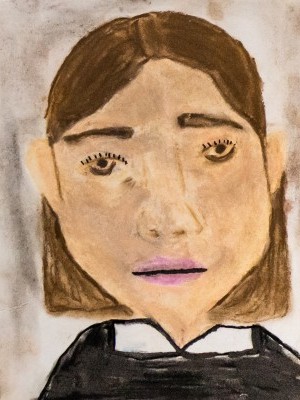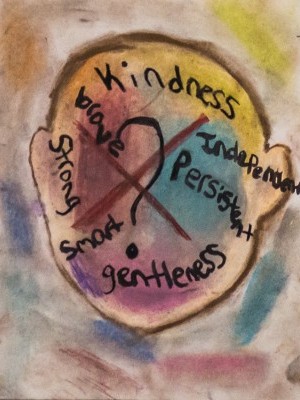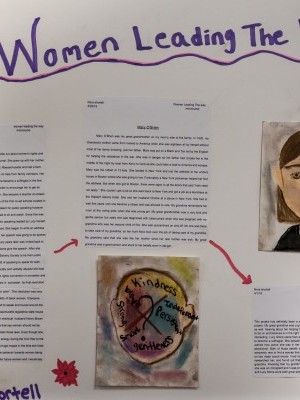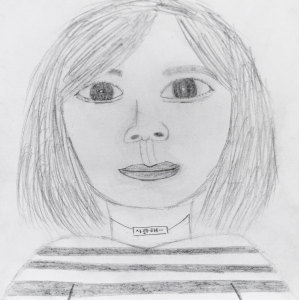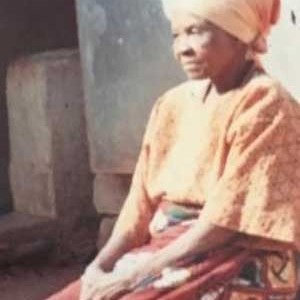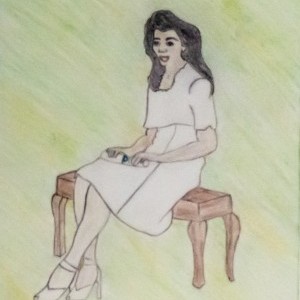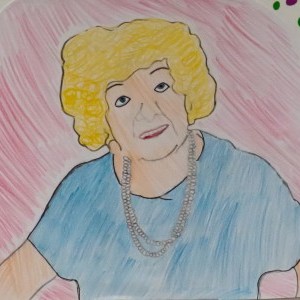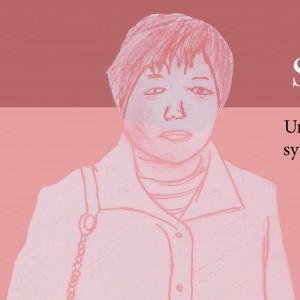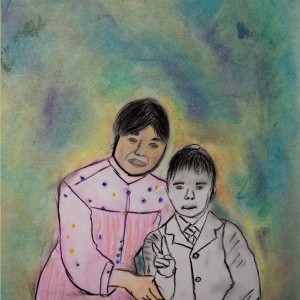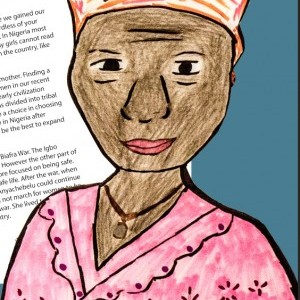Nora Shortell
The Stony Brook School | Stony Brook, NY | 9-12th Grade
Inspirational Family Member
Mary O'Brien
Mary O’Brien was my great-grandmother on my mom’s side of the family. In 1920, my Grandma’s mother came from Ireland to America when she was eighteen all by herself without most of her family knowing, just her father. Mary was put on a Black and Tan list by the English for helping the resistance in the war. She was in danger so her father had to take her in the middle of the night by boat from Kerry to Cork so she could take a boat to America and escape. Mary was the oldest of 13 kids. She landed in New York and lost the address to her uncle’s house in Boston where she was going to live. Fortunately a New York policeman helped her find the address. But when she got to Boston, there were signs in all the doors that said “Irish need not apply.” She couldn’t get a job so she went back to New York and got a job as a laundress at the Waldorf Astoria Hotel. She met her husband Charlie at a dance in New York. She had to wait five years until she became a citizen and was allowed to vote. My grandma remembers her mom at the voting polls when she was a young girl. My great-grandmother was a very kind and gentle person but sadly she was diagnosed with tuberculosis when she was pregnant with my grandma who was her second child of five. She was quarantined on and off. No one was there to take care of my grandma, so her Aunt Nora took over the job of taking care of my grandma. My grandma said that she was like her mother since her real mother was sick. My great-grandma was a good person and stuck to her beliefs even in danger.
Historical Figure I Admire
Lucy Stone
Lucy Stone was an American anti-slavery suffragist, who spoke out about women’s rights and abolition. Lucy was the founder and editor of the Woman’s Journal. She grew up with her mother, father, three brothers and three sisters in West Brookfield, Massachusetts and had a farm, which her mother could barely maintain and received little to no help from family members. Her father believed in male superiority, which questions how she became a suffragist in the first place. Her male-dominating environment only made it harder to encourage her to get an education; however, she was still determined to get an education.
She became a teacher at sixteen and earned enough money to go to college. She went to one of the first co-ed schools located in Ohio. During the time she spent there, she discovered her talent for public speaking; however, debate was only allowed to men. Women were just expected to sit and watch. Since this was the case, women met in secret and continued to practice public speaking, led by Lucy herself. Lucy also had a talent for writing which the school recognized. She began to write an address speech for her college graduation, but she soon learned that her speech was going to be spoken by a man instead of her and refused to obey the school. Lucy, years later was invited back to give a speech and she accepted because they let her alone give the speech.
After she graduated, she was hired by the head of the American Anti-Slavery Society to be their public speaker. Lucy was one of the first women to use her gift of speaking to speak for both abolitionism and women’s rights. Even though she would get physically and verbally abused, she kept going in supporting both causes. She organized a women’s rights convention in Worcester and over 1000 people came. That event became very significant in Worcester. Its final resolution called for “Equality before the law without distinction of sex or color.” This resolution was very controversial at the time because of its support for the equality of black women. It became important for feminism around the world.
Lucy Stone continued to speak and toured around the world about women’s suffrage and abolition. She went to the Massachusetts legislative state house to ask them to give full rights to women. That day she met her eventual husband, Henry Brown Blackwell. They vowed not to follow the laws that say women should not be treated as beings. Henry also promised her that he would protest those laws. Even though she was mostly mentioned as a suffragist, Lucy spent most of her energy during the Civil War focused on the Union side and the end of slavery. In conclusion, Lucy made a huge impact in the time she lived and deserves to be remembered for her persistent and active behavior towards women being granted their freedom. She strived to make the world better for future women and I would say that’s pretty selfless.
What the Project Means to Me
This project has definitely been a journey and I found out a lot about my family by doing this project. My great-grandma was a good person not only to my family, but also to those soldiers as well. Hearing about her helping the resistance and being persistent on what side she wanted to be on and believed was in the right. When I was researching my suffragist, I found her story very interesting. Lucy Stone came from a very dominant male family and I guess that was her reason to become a suffragist. She became successful in plenty of things that she wanted to achieve. I admire how active she was in her beliefs. I also liked that she was both a suffragist and an abolitionist. Both of those beliefs today are very admirable because during that time it was extremely rare to find a woman that was both a suffragist and an abolitionist, willing to take risks on two major social issues. I had no idea what caused my great-grandma’s tuberculosis before I researched her, and found out that she was diagnosed with it during her pregnancy with my grandma. Knowing that my grandma got to vote after five years was heart-warming because she was an immigrant and it was probably harder to vote. In conclusion, both my great grandma and Lucy Stone were both great people with good intentions in this world.
Explore the Archive
More From This Class
Click on the thumbnails below to view each student's work.Deadline Extended
There's still time to join Women Leading the Way.
Become a part of our storytelling archive. Enroll your class today.
Join the Project

